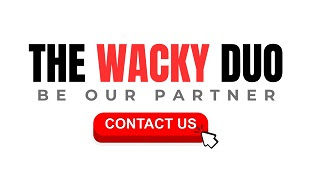Agile Startup Culture: A New Entrepreneur’s Guide
In today’s dynamic startup ecosystem, where speed and adaptability are the keys to success, new entrepreneurs often ask, “How can I build a company that remains nimble and responsive, even as it grows?”
The answer lies in adopting an agile startup culture, which is a mindset that encourages flexibility, fast iteration, and continuous improvement. This approach helps startups stay relevant and enables them to adapt and make responsive decisions based on real-time feedback.
Additionally, with growing competition and shifting consumer preferences, an agile culture has become more of a necessity than a strategic advantage. For new entrepreneurs, knowledge and practice of agile principles could be the key to driving sustainable growth and staying ahead in a rapidly evolving business environment.
Understanding Agile Startup Culture
Agile culture thrives on small, incremental improvements rather than large, infrequent changes. For startups, this means building a product quickly, testing it with real customers, collecting feedback, and then refining the product based on that feedback—often within a matter of weeks.
Unlike traditional corporate cultures, which tend to be hierarchical and process-driven, agile startups operate with a much flatter structure where team members are empowered to make decisions quickly and take ownership of their work.
This culture also extends to the way businesses manage their physical workspace. With rising overhead costs, many startups take advantage of office space for rent in Singapore as a strategic way to maintain flexibility. Renting shared or flexible office space allows them to scale operations without the burden of long-term leases or large upfront costs.
Such flexible office solutions are also perfect for startups that need to pivot quickly and change their workspace requirements as the business grows. Moreover, these spaces often come with the added benefits of networking opportunities, access to resources, and a sense of community—all of which align well with the collaborative, agile mindset.
The Importance of Aspiring to Agile Culture in Singapore
Aligning with Singapore’s Innovation-Driven Ecosystem
Given Singapore’s competitive and fast-moving business scene, an agile culture allows startups to quickly test ideas, adapt to shifting market demands, and pivot when necessary. As a result, businesses can move faster and remain relevant even as they scale.
Entrepreneurs in Singapore are also often tasked with solving problems on a global scale, and agile practices allow them to fail fast and learn quickly from the outcomes. With that in mind, entrepreneurs can stay ahead of the curve and avoid wasting time and resources on products or strategies that may not resonate with customers.
Building Investor and Talent Confidence
Singapore is home to many investors and accelerators who look for startups that can scale quickly and adapt to changing market conditions. An agile culture is appealing to investors because it demonstrates that the startup is responsive, data-driven, and committed to delivering value in a cost-effective way. Agility also signals that the team is capable of managing uncertainty, which is an essential trait in an environment that often requires quick decision-making and a willingness to pivot.
Moreover, an agile culture attracts top talent who value ownership, collaboration, and a sense of purpose. As startups grow, team members become more invested in the company’s success, as they are empowered to contribute ideas, solve problems, and make decisions of their own. This level of engagement leads to higher levels of motivation and innovation, driving the company forward.
Building an Agile Culture in a Growing Startup
Starting with the Right Mindset
Agility begins with a growth mindset, or the belief that skills and abilities can be developed through dedication and hard work. As a founder, your mindset will set the tone for the entire company. Encourage your team to approach challenges with a sense of curiosity and openness. Having said that, it’s best to foster a culture where experimentation is welcomed, and failure is seen as a valuable learning opportunity.
However, this doesn’t mean agility lacks structure. A successful agile startup still needs clear goals, a shared vision, and organised workflows. Without a sense of direction or purpose, teams can become disorganised and lose focus, which can hinder progress instead of enable it. Remember that while agility encourages flexibility, there still needs to be structure in your overall approach.
Forming Cross-Functional Teams
To foster agility, break down silos and encourage collaboration across all functions. In an agile startup, cross-functional teams are essential. These teams consist of people from different disciplines—product development, marketing, sales, design, and more—working together towards a common goal.
While collaboration is essential, agile teams need the freedom to make decisions quickly without waiting for constant approvals. Too much oversight or micromanagement can slow down progress and undermine the team’s agility. As the leader, trust your team to make decisions according to the best of their abilities and empower them to take ownership of their work.
Implementing Lightweight Agile Practices
Larger organisations may implement rigid agile frameworks, but startups can start with lightweight agile practices. This could mean holding short daily stand-ups where team members share updates on what they’ve accomplished, what they’re working on, and any obstacles they’re facing. You can also work in short sprints, where the team focuses on completing specific tasks over a defined period, typically two weeks.
Staying Customer-Obsessed
Agility is ultimately about delivering value to your customers. One of the best ways to do this is by gathering real-time feedback. Singapore’s tech-savvy consumers are quick to share their opinions on products, whether through social media, online reviews, or direct feedback.
You can also conduct user interviews or observe how users interact with your product in real-life scenarios. Regardless of the method, the insights you gain will inform your next iteration and ensure that your product remains aligned with market demands.
Leading by Example
As a founder, you should model agility by making decisions quickly, being transparent with your team, and adapting when necessary. The way you handle failure, feedback, and challenges will set the example for your team. When your team sees you embrace agility with openness and flexibility, they’ll be more likely to adopt the same attitude.
Singapore is the perfect place for entrepreneurs to embrace and try out more agile business practices. Just remember that agility isn’t a fixed destination, but an ongoing journey. As your startup grows, your ability to adapt, learn, and evolve with your team members will be one of your greatest strengths.







No comments